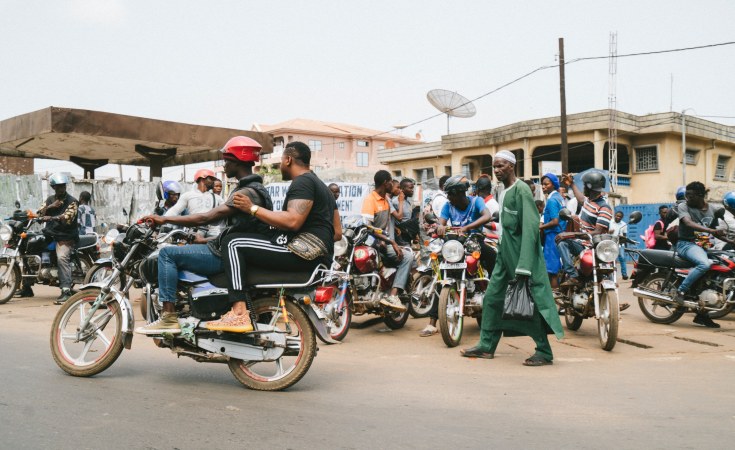Attacks on military barracks and prisons in Sierra Leone on 26 November 2023 were a failed coup attempt, according to police and government officials in the west African country of 8.8 million people. Christina Mammone, who has researched Sierra Leone's transition from mass violence, conflict and atrocities to peace, answers questions on the attempted coup.
What was the context of the November attacks?
There is no specific event or cause which can be identified as the trigger for the recent attacks. There were attacks on Wilberforce, the country's main military barracks, and two maximum security prisons, the Special Court and the Pademba Road Prison complexes. The barracks and the prisons are all based in Freetown, the country's capital.
But there has been growing discontent in the country over the rising cost of living and the post-election stalemate between the two main political parties. In June 2023, the inflation rate increased to 44.81% compared to 27.95% in June 2022. There has also been growing unrest since the re-election of President Julius Maada Bio in June. These may have all contributed to what happened. Even the budget speech by the finance minister in November 2023 acknowledged rising food prices in the country, warning it could ''inflict greater hardship'' on citizens.
The cost of food in Sierra Leone increased 60.34% in October 2023 over the same month in the previous year. Food inflation in Sierra Leone averaged 14.21% from 2008 until 2023, rising to an all time high of 64.67% in September 2023. A major contributing factor has been the price of rice, which increased by 41% (imported) and 40.8% (domestic) year on year. Imported rice was selling for SLL19,067 (US$0.83) in September 2023 versus SLL21,333 (US$0.93) for local rice.
Some citizens think that the government has not done enough to address the rising cost of living. This has led to violence in some instances. Since 2020 there has been a growing divide between the government and some citizens over some political decisions. An example was a protest against the government's plan to move a power plant. There have also been riots and clashes between civilians and the security forces like the one in August 2022 in Freetown over the soaring cost of living. This resulted in alleged heavy-handedness and excessive use of force by the security agents.
These most likely have increased the level of distrust between citizens and the government.
Furthermore, since the June 2023 parliamentary election political tension between the ruling Sierra Leone People's Party and the opposition All People's Congress has increased.
The All People's Congress was critical of a perceived lack of transparency in the election process and results. This made it boycott parliamentary proceedings, which resulted in intervention by the Economic Community of West African States (Ecowas) in resolving the impasse.
What are the implications for peace?
A concern for me is whether this incident will encourage further division and tension between the ruling party and the opposition party. Government actions could have a negative impact and hamper the continued promotion of democratic practices in the country.
However, in my research into transitional justice in the country I found that the resilience and desire of the Sierra Leonean population to preserve peace was exemplary.
What does it signal for recovery from civil war?
It is important to remember that the attack on the Wilberforce Barracks was not the only attack. There were subsequent attacks at both the Pademba Road and Special Court Prison complexes. About 2,200 prisoners escaped from the prisons that were attacked. Some Sierra Leoneans claim that the attack was an attempt to release some military officers who were in the prison.
Given that the government has classified these coordinated attacks as an attempted coup, there is the temptation to draw parallels between the 2023 attacks and the 1997 coup during the civil war which led to the establishment of the Armed Forces Revolutionary Council. The council was formed in May 1997 after Major Johnny Koromo seized power. It met with increasing resistance on all fronts: domestically, its troops were engaged in battle with militia forces loyal to Ahmad Tejan Kabbah's government; internationally, the Commonwealth suspended Sierra Leone, and the United Nations Security Council imposed sanctions on the country. It was eventually overthrown in February 1998 by the Ecowas Monitoring Group troops.
Furthermore, some of those involved in the attack have been identified as part of the military and the police, raising questions on the security situation of the country.
Despite such concerns, Sierra Leone has remained relatively peaceful in the two decades since the war ended. It also has a tested framework to continue to do so but investigations into the recent attack must be transparent and impartial.
What is the likely impact on democracy?
I think the coming months are crucial for democracy in Sierra Leone.
This year was a watershed in the political history of the country. The All People's Congress candidate, Samuel Kamara, rejected the presidential elections result. The party subsequently boycotted the parliament.
This political impasse was resolved on 23 November, three days before the attack, with the announcement of a cross-party Elections Review Committee.
While the opposition party has denied involvement in the attack and condemned the attendant violence, there are concerns about the likely impact on political collaboration and bipartisanship.
This is why subsequent actions of the government must be measured and investigations into the attacks conducted impartially and transparently. This is because such actions will directly affect the continued promotion of democracy in Sierra Leone.
Christina Mammone, Early Career Researcher in Peace and Conflict Studies, Flinders University


